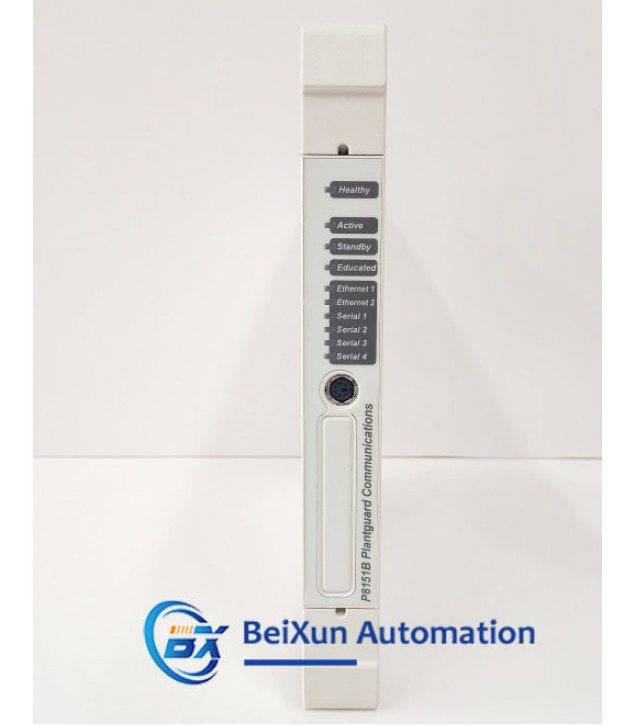ABB P8151B
The ABB P8151B is a unit processor module designed for industrial automation control systems. Below is a detailed overview of its functional features and application scenarios:
Functional Features
- Triple Modular Redundancy (TMR): Integrates a triple modular redundancy architecture where each module operates independently with real-time voting mechanisms. This ensures the system continues functioning reliably even if one module fails, significantly enhancing overall system reliability.
- High-Performance Processing: Equipped with a high-speed processor, it delivers powerful computing capabilities to support complex logical operations and real-time task management. It efficiently handles large volumes of I/O operations and control algorithms, adapting well to complex industrial process control needs.
- Reliability and Maintainability: Supports hot-swapping, facilitating online maintenance and module replacement during system operation, thus reducing downtime. Built-in fault detection and isolation mechanisms quickly isolate faulty modules upon detection, ensuring uninterrupted operation of other system components.
- Robust Communication Capabilities: Compatible with various industrial protocols such as PROFIBUS and MODBUS, enabling seamless integration into distributed control systems (DCS) for efficient, stable communication with other devices, promoting system integration and collaboration.
- Strong Environmental Adaptability: Suitable for harsh industrial environments with excellent resistance to vibration and electromagnetic interference. It operates stably under high temperatures, humidity, and dusty conditions, ensuring reliability across diverse industrial scenarios.
Application Scenarios
- Petrochemical Industry: Critical for process control and safety interlock systems in petrochemical plants, where high temperatures, pressures, and flammable/explosive processes demand extreme safety and reliability. It ensures stable and safe operations in such hazardous environments.
- Power Sector: Applied in power generation, transmission, and distribution systems. It enables precise control and monitoring of equipment in power plants' DCS and substation automation systems, ensuring stable power supply through reliable management of generators and substation devices.
- Metallurgical Industry: Used in automation systems for metallurgical production lines (e.g., steelmaking, non-ferrous metal processing). It precisely controls process parameters and monitors equipment, enhancing production efficiency and product quality.
- Rail Transit Industry: Integrates into signal control systems for metro, high-speed rail, etc. It controls and monitors train operation signals, ensuring safe and on-time train operations.



